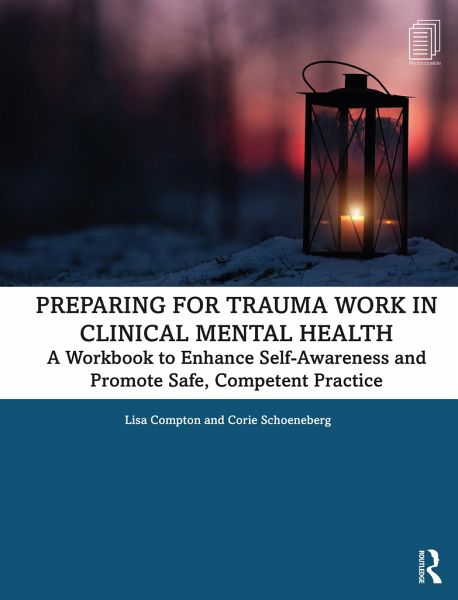
Preparing for Trauma Work in Clinical Mental Health
A Workbook to Enhance Self-Awareness and Promote Safe, Competent Practice
Versandkostenfrei!
Versandfertig in 1-2 Wochen
52,99 €
inkl. MwSt.
Weitere Ausgaben:

PAYBACK Punkte
26 °P sammeln!
This workbook is a foundational and unique resource for clinicians preparing to work with clients affected by trauma. Chapters integrate a holistic understanding of the unique client within trauma-specific case conceptualization, promote trainees' identification of personal values and past experiences that could impact their ability to provide safe and ethical services, and offer ways to reduce the risk of occupational hazards such as vicarious traumatization. The trauma treatment process is presented within the tri-phasic framework, which is applicable across settings, disciplines, and variou...
This workbook is a foundational and unique resource for clinicians preparing to work with clients affected by trauma. Chapters integrate a holistic understanding of the unique client within trauma-specific case conceptualization, promote trainees' identification of personal values and past experiences that could impact their ability to provide safe and ethical services, and offer ways to reduce the risk of occupational hazards such as vicarious traumatization. The trauma treatment process is presented within the tri-phasic framework, which is applicable across settings, disciplines, and various theoretical orientations. Each chapter also provides experiential activities that link the chapter content with clinician reflection and application of knowledge and skills, which instructors and supervisors can easily utilize for evaluation and gatekeeping regarding a student's mastery of the content. An ideal resource for graduate-level faculty and supervisors, this book offers a versatile application for mental-health related fields including counseling, psychology, social work, school counseling, substance abuse, and marriage and family therapy. Designed for students and professional clinicians, this groundbreaking text fills an important education and training gap by providing a comprehensive and enlightening presentation of trauma work while also emphasizing the clinician's growth in self-awareness and professional development.














